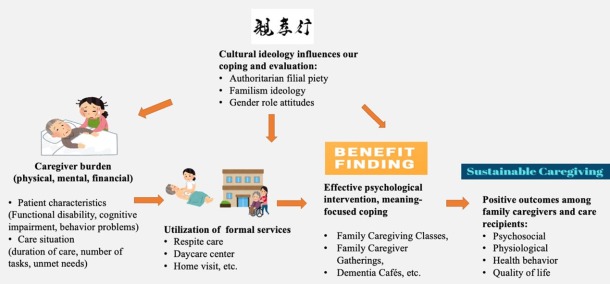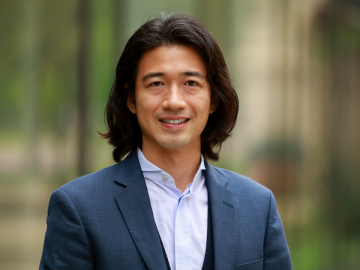
I am a mixed-methods researcher specializing in the intersections of public policy, sociology, and public health. My primary interest lies in understanding how sociocultural factors influence the effectiveness of public policies aimed at promoting social justice and the well-being of the elderly, disabled individuals, and minority groups. For instance, my PhD dissertation focused on ICT policy to promote employment and entrepreneurship for people with disabilities in China. In this study, I applied public policy theories and utilized case studies, social network analysis, and qualitative comparative analysis to explain how the structure of policy networks influences policy outcomes in China.
The main project I have been working on at Waseda Institute for Advanced Study is to understand how we can promote resilience in family caregiving through community-based integrated care systems in aging societies. My current research focuses on both the complex interplay between cultural values (e.g., attitudes toward gender roles, filial piety, etc.) and the well-being of family caregivers and older adults, and how pluralistic policy networks function as “structure,” “process,” and “practice” to facilitate “aging in place.” This concept refers to maintaining independence, autonomy, and living in a familiar community throughout one’s life (Wiles et al., 2012).
Gap in research
How cultural values affect the well-being of family caregivers in an aging society
Given the unprecedented trend of global aging and declining fertility rates, alleviating the burden of family caregiving has significant public health implications. It is widely recognized that caregiving can be stressful and can create an imbalance between care demands and the family caregivers’ time, social roles, physical and emotional states, and financial resources.
Over the past few decades, research on family caregivers has primarily focused on the negative aspects of caregiving such as depression, stress, and strain on roles. While these burdens are significant, other aspects of caregiving, including its positive dimensions and the social and cultural values that drive caregiver motivation also have important implications for theory, research, policy, and practice.
For instance, despite these burdens, many family caregivers also report experiencing a sense of meaning and fulfilment in their caregiving journey, improved relationships with the care recipient, insights about suffering, personal accomplishment, family cohesion, personal growth and purpose in life, an understanding of life and its frailty, and personal accomplishment. Thus, finding benefits in caregiving has been identified as a common method for meaning-focused coping and psychological interventions.
Caregiving is a complex process and many factors influence caregivers’ coping mechanisms and adaptation to stress. Some cultural values may also influence caregivers’ decision-making regarding the utilization of formal services and evaluation of their caregiving tasks (see Figure 1 for a brief understanding of the complex processes of coping and appraisal in caregiving). Thus, understanding the characteristics of resilient individuals can help identify those features of communities that enable or facilitate people to thrive and “age in place.”

Figure 1 Complex coping and appraisal in the caregiving process
In collaboration with researchers in China and Japan, my ongoing research employs a mixed methods approach and uses family level data. In a recent publication in The British Journal of Social Work, I found that many spousal caregivers perceive caring for their partners to be both burdensome and meaningful. Through analysis of both quantitative and qualitative data, I discovered that modern attitudes toward gender roles act as catalysts for better coping with caregiving burdens. In contrast, traditional attitudes toward gender roles may discourage support-seeking, as it could be seen as a failure to adequately care for one’s spouse and a violation of societal norms.
Another study focusing on adult child caregivers published in BMC Geriatrics found that Chinese adult children who adhere to the ideology of authoritarian filial piety may lean toward emotion-focused coping (i.e., self-sacrifice, self-blame, and obedience) rather than solution-focused coping (i.e., utilization of formal support and respite services, and accepting help from others).
Practical implications
These findings provide valuable insights for designing effective interventions for family caregivers in aging societies with similar cultural norms. For example, caregiver self-efficacy can be strengthened through community coaching courses such as Family Caregiving Classes, Family Caregiver Gatherings, and Dementia Cafés. In addition, designing culturally sensitive psychoeducational therapies can help alleviate the subjective burden arising from cultural expectations. My fieldwork in China, Japan, and Germany has shown that family caregivers participating in self-help groups can greatly benefit both the caregivers and the older adults they care for.
My Upcoming Research
In addition to the aforementioned studies that focus on micro-level data and demand-side analyses, I also focus on meso-level data and supply side analyses. I explore how policies and various policy actors influence the effectiveness of policy implementation through different mechanisms. The initial work from my PhD dissertation demonstrated that various policy networks involving individuals, families, governments, civil society, and corporations can affect policy effectiveness.
What strategies and interventions can be implemented to enhance family caregiving resilience through community-based integrated care system?
Community-based integrated care systems (CBICS) have been developed in Japan to provide comprehensive support and services in the community to enable people to maintain independence and autonomy and continue to live autonomously in a familiar community until the end of their lives. It echoes the notion of ‘aging in place.’ With the rapid aging of society and the prevalence of dementia, it is imperative to establish tailored CBICS to facilitate people’s continued residence in familiar environments until the end of their lives.
Since July 2023, my collaborators and I have visited several cities and towns in Japan and Germany that face aging and depopulation issues. We conducted interviews and focus group discussions with the key stakeholders involved in CBICS. My future research will explore the various strategies and interventions that have been implemented to enhance family caregiving resilience through community-based integrated care systems.
Practical implications
I am currently in the middle of analyzing the data we collected, but I am excited to share a preliminary finding: unpaid support provided by friends, neighbors, and volunteers is effectively filling the gaps in the formal system. The cases investigated in this study are highly informative for societies that lack substantial policies and formal programs and offer valuable insights into alternative support mechanisms.
As the former First Lady of the United States, Rosalynn Carter, once said, “There are only four kinds of people in the world. Those who have been caregivers. Those who are currently caregivers. Those who will be caregivers, and those who will need a caregiver.”
I hope that my research can contribute to the design of effective strategies and interventions to enhance family caregiving resilience in the future. This issue affects everyone at various points in their lives, making it universally significant and imperative.
【References 】
- Yan, Z., Zhang, J., & Sun, X. (2024). Burdened but meaningful? How gender role attitudes influence the complex links between care-giver self-efficacy, formal support utilisation and benefit-finding among spousal care-givers. The British Journal of Social Work, 54(1), 124–146.
- Zhang, J., Sun, X., & Yan, Z. (2024). Blessing or curse: The role of authoritarian filial piety and self-efficacy in caregiver gains among Chinese family caregivers caring for physically impaired older adults. BMC Geriatrics, 24(1), 163.
- Wiles, J. L., Leibing, A., Guberman, N., Reeve, J., & Allen, R. E. (2012). The meaning of “aging in place” to older people. The Gerontologist, 52(3), 357–366.










